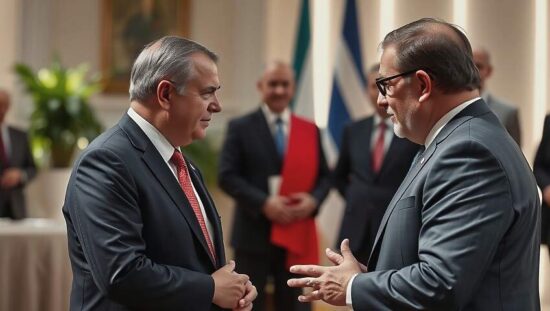German Foreign Minister Johann Wadephul of the Christian Democratic Union (CDU) has embarked on a brief, high-stakes visit to Ankara, signaling a deliberate shift towards a warmer diplomatic approach with the Turkish government. The visit, lasting only approximately seven hours, comes amidst ongoing concerns regarding Turkey’s democratic backsliding and its increasingly assertive foreign policy, raising questions about the motivations and potential consequences of this renewed engagement.
Wadephul, in pre-visit remarks, emphasized the “geostrategic importance” of strengthening EU-Turkey cooperation, a statement widely interpreted as an attempt to leverage Turkey’s regional influence while implicitly acknowledging the challenges involved. “Traveling to Turkey is something special for every German foreign minister” he remarked, highlighting the complex, deeply intertwined societal ties between the two nations. However, the unspoken question is whether these societal connections outweigh the growing divergence in political values and human rights records.
A central component of the discussions is expected to revolve around the specific political reforms and decisions required from Turkey for this renewed cooperation to be genuinely sustainable. The carefully worded acknowledgement of Turkey’s role in securing a recent historical ceasefire in Gaza, framing Ankara as a supporter of a peace plan and a necessary lever for pressure on Hamas, underscores a strategic effort to utilize Turkey’s position. Critics, however, argue that such praise risks overlooking persistent concerns about Ankara’s involvement in regional conflicts and its increasingly strained relations with other nations.
The agenda also includes the protracted crisis in Syria, where Germany is advocating for a political transition inclusive of all societal and religious groups, with the stated goal of facilitating the safe return of refugees. This shared objective, while presented as a point of common ground, fails to mask the differences in approach; Turkey’s involvement has been frequently criticized for exacerbating instability and hindering genuine reconciliation.
The short duration of the visit, coupled with a scheduled meeting with the head of Turkey’s domestic intelligence agency, suggests a tightly controlled and potentially sensitive exchange. While a meeting with Foreign Minister Hakan Fidan is confirmed, the absence of broader engagement with Turkish civil society or parliamentarians has drawn criticism, raising concerns that the visit prioritizes strategic alignment over genuine dialogue and a comprehensive assessment of the situation on the ground. Some analysts speculate the brief nature of the visit is intended to project a message of both engagement and cautious distance.





